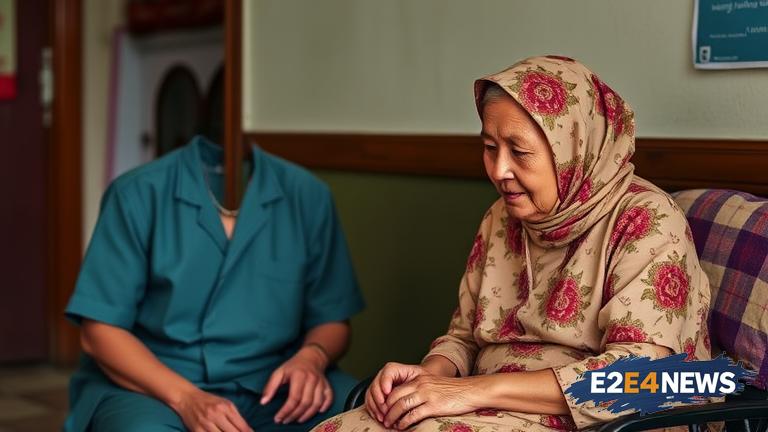Malaysia is on the cusp of a significant demographic shift, with its population rapidly ageing and a corresponding surge in demand for caregivers. As the country moves towards becoming an ageing society, the need for skilled and compassionate caregivers has become increasingly pressing. The Malaysian government has acknowledged the looming shortage of caregivers, with estimates suggesting that the country will require tens of thousands of additional caregivers in the coming years. This shortage is attributed to a combination of factors, including a lack of trained caregivers, limited job opportunities, and a general perception that caregiving is a low-skilled and low-paying profession. However, caregiving is a highly skilled and rewarding career that requires a unique blend of technical knowledge, emotional intelligence, and interpersonal skills. Caregivers play a vital role in supporting the elderly, enabling them to live independently and maintain their dignity. As the Malaysian population continues to age, the demand for caregivers will only continue to grow, with projections suggesting that the country will have over 3.5 million citizens aged 60 and above by 2030. This demographic shift will have significant implications for the country’s healthcare system, social services, and economy. The Malaysian government has launched initiatives aimed at addressing the caregiver shortage, including training programs, recruitment drives, and incentives for caregivers. However, more needs to be done to attract and retain skilled caregivers, including improving working conditions, enhancing career prospects, and promoting a culture of respect and appreciation for caregivers. The private sector also has a critical role to play in addressing the caregiver shortage, with many companies and organizations recognizing the importance of supporting their employees’ caregiving responsibilities. By investing in caregiver training and support, companies can help to reduce turnover rates, improve productivity, and enhance their reputation as socially responsible employers. Furthermore, technology can also play a key role in supporting caregivers, with innovations such as telehealth, mobile apps, and artificial intelligence enabling caregivers to provide more effective and efficient care. Despite these efforts, the caregiver shortage remains a pressing concern, with many families struggling to find and afford quality care for their loved ones. The consequences of inaction will be severe, with the elderly and vulnerable members of society facing reduced access to essential care and support. Therefore, it is imperative that the Malaysian government, private sector, and civil society work together to address the caregiver shortage and ensure that the country’s ageing population receives the care and support they deserve. This will require a sustained and coordinated effort, with a focus on training, recruitment, and retention of skilled caregivers. By prioritizing the needs of caregivers and the elderly, Malaysia can build a more compassionate and inclusive society, where everyone has access to quality care and support. The country’s ageing population is a pressing concern that requires immediate attention, and the government, private sector, and civil society must work together to address the caregiver shortage and ensure a brighter future for all Malaysians. The need for caregivers is not limited to the elderly, as people with disabilities, chronic illnesses, and mental health conditions also require specialized care and support. Caregivers are the backbone of the healthcare system, providing essential care and support to vulnerable members of society. They are also critical to the social and economic development of the country, enabling people to live independently and contribute to their communities. In conclusion, the caregiver shortage in Malaysia is a pressing concern that requires immediate attention and action. The government, private sector, and civil society must work together to address the shortage, by investing in caregiver training and support, promoting a culture of respect and appreciation for caregivers, and recognizing the critical role that caregivers play in supporting the elderly and vulnerable members of society.





